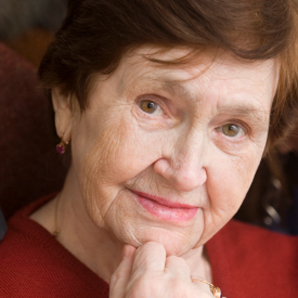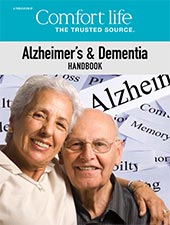Four signs your elderly parents need help at home
In our last post, we offered tips to observe and assess whether Mom and Dad were safe and well at home. Well – how did it go? Chances are that many of you saw things that gave you concern.We had suggested that soon after the holidays, you should document your thoughts and ask your siblings for their observations. Common themes can lead you to major areas to address.

Observations of Common Themes
You may have compared notes with your siblings and came to some similar conclusions about areas of concern:
1. Personal care
Support may be needed for a sliding scale from dressing right through to bathing and very basic grooming. There are lots of reasons that bathing may be avoided - fear of falling, getting in and out of the tub and shower, discomfort with part of the body such as sensitive skin or feet, excessive dryness resulting from hot water, general apathy that ‘I’m clean enough’.
Why it’s a concern:
Poor grooming can lead to loss of self-esteem, depression, isolation, reluctance to socialize.
Poor self-care can result in urinary tract infections, the symptoms of which can mimic dementia.
2. Mail piling up:
Unattended mail can be the result of apathy; it can also signal worry over the mail’s contents – statements reporting bad investment results, overdue bills for unaffordable purchases, solicitations from unwelcome charities, unchecked credit card and bank statements.
Why it’s a concern:
Unpaid bills will adversely affect the credit rating; unchecked statements may, if studied, reveal unusual spending patterns or cheques to unknown payees, a clue to potential fraud.
3. General clutter:
Many seniors are collectors, and most folks love to display photos and gifts from family and friends. If your parent is able to safely navigate, readily find things and make sense of the treasured possessions that you see as clutter, it may in fact be more manageable than it looks.
Why it’s a concern:
General clutter indicates apathy, depression confusion and in extreme cases, mental illness – think of the TV show, ‘Hoarders’. At the very least it’s a barrier to mobility and organization. Clutter may be a defense and an effort to exert control over a safe part of the environment.
4. Mountains of meds:
Myriad meds may be an indication of over-medication, expired drugs, multiple diagnoses, doctors and prescriptions.
Why it’s a concern:
Mountains of meds almost always result in confusion, improper dosages and general disorganization of health needs which can quickly exacerbate existing health conditions and create new ones.

What’s Really Going On
Think about how you feel when things get out of control at work, or you’re forced to accept something new that’s outside your comfort level. Imagine, then, feeling that way all the time, and you’ll have an idea of how many elders experience the world. The elder years bring great satisfaction and rewards, but they are also years of loss – the death of friends and spouses, and cumulative losses such as no longer being able to drive, a decline in basic mobility, changes in surroundings, and loss of general confidence and optimism.
Fear of Change can Invoke a Grief Response
The five stages of grief coined so many years ago by Dr. Elisabeth Kubler-Ross - anger, denial, bargaining, depression, acceptance - apply not only to death, but to any dramatic change in life. Anger and denial, for example, are immediately evident to any adult child who has tried to suggest that their parent give up driving!
But what’s really going on is a well-justified fear of change, and resentment over lost control of daily activities. Bargaining is a familiar response – agreeing to a cleaning lady when what’s really needed is a nurse.
Depression is a serious problem among the elderly, and often attributed to ‘just grief’, so that medical help is not sought. It’s important to anticipate, recognize and deal with these stages to help your parent move forward.
Education is also in order. Home care has changed over the past ten years, as have all aspects of eldercare. There is an enormous range of options between the extremes of ‘alone at home’ and ‘going to an institution’. You owe it yourself, and your parent, to find out the most current information available.
Making Help Happen
You are probably aware that a legally competent person cannot be forced to accept help. It is your task, then, to objectively assess your parent’s needs, identify where help could make their life easier, then research what services are available to meet the need.
Anyone coping with eldercare is no stranger to family dynamics. Ask yourself – are you really the best person to be doing this? Get professional help if you need it, rather than risking a false start with a poor result.
And that will be the topic of our next blog!
Get more assistance and advice from ElderCare Coach at: ElderCareCanada


